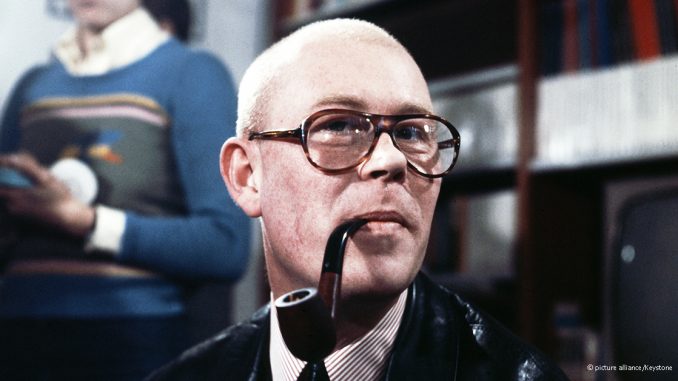

To celebrate the first complete English translation of Uwe Johnson’s magnum opus Anniversaries (New York Review Books, 2018) translator Damion Searlsjoins critics Renata Adler and Liesl Schillinger for a reading and discussion of this German postwar classic, examining both its significance a unique literary document of New York in the 1960s, and its continued resonance 50 years later in a world of increasing inequality, authoritarianism, and violence.
Uwe Johnson (1934-1984) lived in New York from 1966-1968, and started writing his Anniversaries (Jahrestage) while living here. The book takes place across different places and eras: New York in the 1960s and the German province of Mecklenburg in the 1930s are the main settings of the novel. The narrative extends over 365 days from August 21, 1967 to August 20, 1968.
Johnson weaves personal history with larger world events, making the fictional character Gesine Cresspahl and the New York Times equal protagonists of the novel. Johnson spent about 15 years working on the massive novel (nearly 2000 pages in the original German), which includes more than 500 characters and 125 places. An almost documentary intertextuality pervades the character of the book, taking a postmodern turn as an omniscient narrator no longer believes Johnson. The quotes that are liberally integrated throughout the book allow the reader to construct their own narrative.
Damion Searls grew up on Riverside Drive in New York City, three blocks away from Gesine Cresspahl’s apartment. He is the author of a book on Hermann Rorschach and the Rorschach test, and has translated many classic modern writers, including Marcel Proust, Rainer Maria Rilke, Friedrich Nietzsche, Robert Walser, Ingeborg Bachmann, Alfred Döblin, Jon Fosse, Elfriede Jelinek, Patrick Modiano and Nescio.
Renata Adler was born in Milan and raised in Connecticut. Adler became a staff writer at the New Yorker in 1963 and, except for a year as the chief film critic of the New York Times, remained at the New Yorker for the next four decades. Her books include A Year in the Dark (1969); Toward a Radical Middle (1970); Reckless Disregard: Westmoreland v. CBS et al., Sharon v. Time (1986); Canaries in the Mineshaft (2001); Gone: The Last Days of The New Yorker (1999); Irreparable Harm: The U.S. Supreme Court and The Decision That Made George W. Bush President (2004); and the novels Speedboat (1976; winner of the Ernest Hemingway Award for Best First Novel) and Pitch Dark (1983).
Liesl Schillinger is a literary critic, writer and translator, and teaches journalism and criticism at the New School in New York City. Her articles, reviews and essays have appeared in the New York Times, Foreign Policy, the New York Review of Books, the New Yorker, the New Republic, the Washington Post, and other publications. She has translated novels from the French and the German for Penguin Classics, Viking, and New York Review Books, and is the author of Wordbirds: An Irreverent Lexicon for the 21st Century. In 2017 she was named a Chevalier of the Ordre des Arts et des Lettres of France.
Date: 11/01/18
Time: 7:00pm
Location: GOETHE-INSTITUT NEW YORK, 30 Irving Place, New York, NY 10003
For more information please visit www.goethe.de